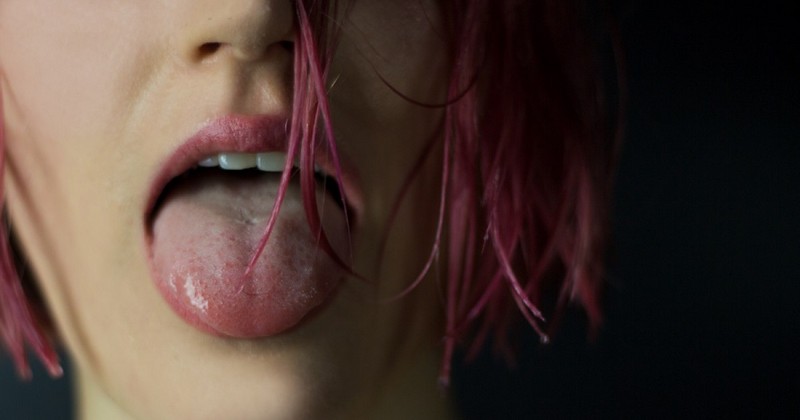Rapunzel’s syndrome: symptoms, causes and treatment

This disorder leads people to eat hair until it accumulates in the digestive system.
When we delve into the world of psychopathology, we find that there are really surprising and serious disorders. In this article we will talk about one of them, the Rapunzel syndrome..
This syndrome is also known as trichophagia, and consists of swallowing one's own hair (or even that of others) compulsively and without being able to avoid it. We will talk about its symptoms, possible causes and treatments.
Rapunzel syndrome: characteristics
The Rapunzel Syndrome is a very rare and complex very rare and complex entity, described for the first time in 1968 by the surgeon Vaughan ED Jr. and his collaborators.. To date, 108 pediatric cases have been described in the world literature, of which two have been published in Spain.
The name of this pathology comes from the famous character in the fairy tales of the Brothers Grimm. Rapunzel syndrome appears especially in young women.
It is a compulsive psychological disorder, characterized by the fact that the sufferer ingests her own hair without being able to avoid it, causing an extremely rare and severe intestinal obstruction. extremely rare and severe.
Symptoms
The person with Rapunzel Syndrome occasionally pull out their hair, taste it, bite it, and finally swallow it; sometimes they may even swallow other people's hair.
Over time, these patients eventually develop these patients eventually develop a kind of ritualistic. The behavior may also include eyebrow hair and even eyelashes.
This is a serious syndrome, as the human gastrointestinal tract does not have the capacity to digest hair, so what happens is that the hair tends to remain in the stomach for a prolonged period of time. This leads to the formation of a large ball of hair (called a trichobezoar) in the stomach, and the only way to remove it is surgically..
This hairball can cause gastrointestinal discomfort and, in severe cases, obstruct the intestinal tract. In addition, the syndrome can cause diarrhea, weight loss and abdominal pain, among other symptoms.
Complications
Thus, Rapunzel syndrome can become very complicated. If the hairball ends up forming in the stomach, and if it is also of considerable size, the effects can be really serious for the person, since as we have seen the intestinal tract is unable to digest the main component of hair, keratin..
In these cases, surgery must be performed. One of them was reported in the USA; that of a 38 year old woman who had lost 7 kilos in 8 months. Her symptoms were nausea, vomiting and constipation. A hairball had accumulated in her stomach and she had to undergo surgery.
Associated disorders
Rapunzel syndrome is associated with trichotillomania (also a disorder belonging to the obsessive-compulsive disorders in the DSM-5), a disorder that consists of compulsive hair pulling; if the individual also swallows his own hair, we speak of trichophagia (equivalent to Rapunzel Syndrome).
Causes
The causes of Rapunzel syndrome are not entirely clear. However, the existing cases (estimated at 4% of the US population) are related to depressive problems, are related to depressive problems, anxiety and low self-esteem..
Treatment
Treatment of Rapunzel Syndrome will be focused on eliminating these severe compulsive behaviors; exposure behavioral therapy with response prevention can be used.The person avoids the behavior of pulling, biting or swallowing the hair. Also, habit reversal therapy, where the aim is to replace harmful habits with alternative and incompatible behaviors.
In addition, cognitive-behavioral therapy would also be indicated, to treat the associated erroneous thoughts as well as cognitive distortions and/or anxious and depressive symptoms that may appear.
They can also be used, always under medical prescription and in consultation with a specialist, drugs to alleviate the anxious and depressive symptoms associated with the disorder, such as anxiolytic or depressive drugs.such as anxiolytic or Antidepressant drugs.
Bibliographic references:
- American Psychiatric Association. (2013). Diagnostic and statistical manual of mental disorders. Fifth edition. DSM-5. Masson, Barcelona.
- Beristain-Silva, J.L., Cordero-Barberena, R., and Beristain-Hernández, J.L. (2016). Rapunzel syndrome: A rare cause of abdominal pain. Revista Gastroenterología México, 81(3), 119-180.
- Germani, M., Beltrà, C. and Hernández, C. (2014). Rapunzel syndrome: laparoscopic treatment. Annals of Pediatrics, 80(2), 69-1.
(Updated at Apr 13 / 2024)